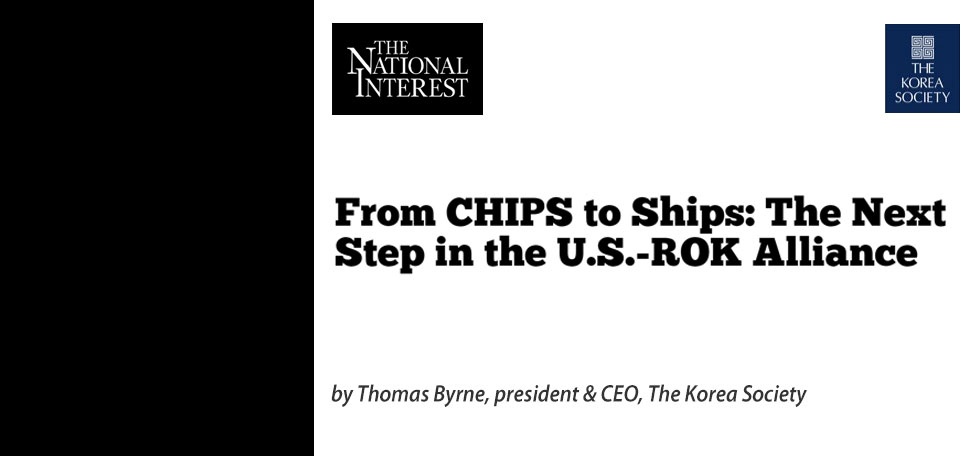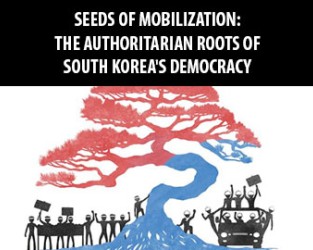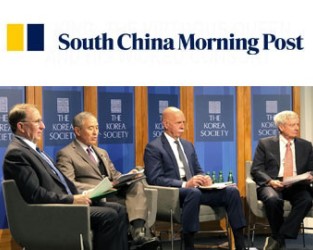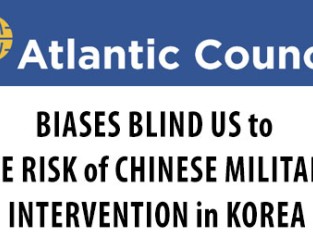![]()
June 3, 2016
Time for Intensified Dialogue on the Korean Peninsula
Ambassador Thomas Hubbard
On May 6, the Democratic People’s Republic of Korea kicked off the historic Seventh Congress of the Workers’ Party of Korea, marking the first such official gathering of the regime’s senior leadership since Supreme Leader Kim Il-sung convened the Sixth Congress in 1980.
English
![]()
June 3, 2016
Time for Intensified Dialogue on the Korean Peninsula
Ambassador Thomas Hubbard
On May 6, the Democratic People’s Republic of Korea kicked off the historic Seventh Congress of the Workers’ Party of Korea, marking the first such official gathering of the regime’s senior leadership since Supreme Leader Kim Il-sung convened the Sixth Congress in 1980.
Though the Congress’ announcement in October 2015 provoked considerable media speculation (the late Kim Jong-il never once held one during his years in power, and current leader Kim Jong-un’s reasons for calling the Seventh Congress this year were unclear), the Congress turned out to be little more than an opportunity for pomp and circumstance that allowed Kim to consolidate his leadership in a highly visible manner. The event concluded on May 9 with Kim being named Chairman of the Workers’ Party, a symbolic gesture that reaffirms his total authority above the 38th parallel. While a new economic five-year plan was announced, perhaps the most notable outcome was North Korea’s steadfast assertion that it is and will remain a nuclear state, and that Kim’s preferred byungjin policy will see Pyongyang simultaneously develop its moribund economy and continue building its nuclear arsenal.
With four nuclear tests under its belt and a fifth possible at any time, it is now abundantly clear that Kim Jong-un has tied regime survival and legitimacy to the development of deliverable nuclear weapons. Though North Korea continues to insist that its weapons program is purely a defensive “deterrent,” its unwillingness to denuclearize has left it at loggerheads with South Korea, the U.S., and Japan, all of whom refuse to engage in dialogue with Pyongyang until it takes “concrete steps” to demonstrate a commitment to that end. While China has shown greater eagerness to talk, Beijing, too, has expressed deep frustration with its rogue ally and took initial steps to enforce strengthened U.N. sanctions. A nuclear North Korea threatens the stability of Northeast Asia and creates a Pandora’s Box capable of undermining the global non-proliferation regime. In the absence of talks, Pyongyang’s relations with all four countries have deteriorated, and progress on any front has stagnated.
Though a resumption of the long-dormant six party talks still seems some distance away, the absence of government-to-government dialogue has not stopped prominent regional voices from coming together to discuss the North Korea question. On May 26, The Korea Society and the National Council for American Foreign Policy jointly held a U.S.-Japan-China-South Korea Quadrilateral, inviting several dozen academics, former government officials, and policy advisors from all four countries to share viewpoints, exchange ideas, and brainstorm policy directives for security and cooperation in East Asia. Panelists covered a variety of topics, sparking debate on North Korea’s nuclear development, prospects for regime collapse, reunification scenarios, and options for engaging Pyongyang in the near future.
The discussion of broader regional security issues revealed that the key regional players remain divided by historical and territorial disputes as well as uncertainties over the impact of China’s rise and America’s future role. On North Korea, however, they showed a remarkable unity of purpose. All agreed that North Korea’s nuclear program is a growing threat that requires urgent attention. Opinions differed, however, on the relative roles of pressure and dialogue in pursuing denuclearization and on how best to get back to the negotiating table. All four countries agree that North Korea cannot be accepted as a nuclear power. That said, they all recognize that the North Korean regime is not now prepared to give up its nuclear ambitions. Several participants pointed to the contradiction between recognizing the fact that North Korea is determined to pursue its nuclear program while demanding a commitment to denuclearization as a precondition for talks aimed at pursuing that goal. Pressure alone is unlikely to work unless all concerned, including China, are willing to risk regime collapse. If talks are also important, as all seem to agree, how can we get back to the table without resolving this dilemma?
Non-governmental discussions of this kind will not solve the North Korean problem. Only governments can do that. But this lively discussion demonstrated that official channels are not the only means by which South Korea and its neighbors can make progress on these critical issues. Broadening the scope of cooperation to include the academic community, journalists, and former officials provides an opportunity for uncensored and frank multilateral discussion free from the constraints of diplomacy. Engagement at this level can tackle the most divisive questions, influencing national and international dialogue and paving the way for senior-level talks that can effect real policy change. Quadrilateral, trilateral, and bilateral meetings provide a model for the sort of cooperation on North Korea that the international community desperately needs. In my view, it is time for these four governments to intensify their official dialogue on the critical issues affecting the future of the Korean Peninsula.
[TB1]Pls cite the who in the UN, the GS’s office?










